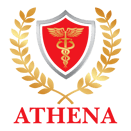Mobile: 7075040344 ,9502693666 E-mail: info@athenamedicalcoding.in
How to Become a medical coder
Athena Medical Coding Training Institute
Advanced Medical Coding Training | CPC Exam Preparation | Placement Assistance | International Medical Coding Training | Work from Home | Earn up to one lac per month
Welcome
ATHENA Medical Coding Training Institute | Best Medical Coding & CPC Certification Training Institute
Embark on a fulfilling career path with our comprehensive Medical Coding and Billing Training Program! Tailored to be entirely job-focused, this program equips you with the expertise to thrive in the dynamic and expanding field of Medical Coding and Billing. The healthcare industry is on the cusp of unprecedented growth, with the Bureau of Labor Statistics (BLS) forecasting the creation of three million new jobs by 2030 – a growth rate unmatched by any other sector. In this rapidly evolving landscape, there is a pressing need for proficient Medical Coders and Billers. These vital professionals play a key role in healthcare, ensuring the accurate filing of HIPAA-compliant claims and streamlining the reimbursement process for healthcare providers. Join us to become an essential part of this booming industry and secure your future in Medical Coding and Billing!
About Us ---------->
ATHENA Top Medical Coding Training Institute | Best Medical Coding Classes & CPC Certification Training Institute
At Athena Medical Coding Training Institute, situated in Ameerpet, we stand as the premier destination for medical coding education. With over 7+ years of experience, our institute boasts a track record of excellence, offering CPC certification with placement assistance by real-time industry experts. With 972 students trained, 290 placed, and 321 CPC certified, we ensure unparalleled success for our students in the healthcare coding field.
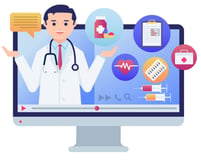

Medical Coding & Billing
CPC Certification
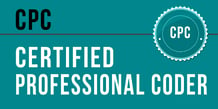

Medical Specialty Trainings
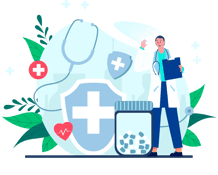

AHIMA UK Certified Coding Specialist
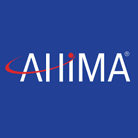

Why Choose Athena
Medical Coding Training Institute | CPC Certification Training Institute in Hyderabad
1. Comprehensive curriculum
Athena Medical Coding Training Institute offers a comprehensive curriculum that covers all aspects of medical coding and billing. Students receive in-depth training on:
Medical Terminology: Understanding medical language and terminology.
Coding Systems: Mastery of ICD-10, CPT, and HCPCS coding systems.
Insurance Claim Processing: Knowledge of how to process insurance claims efficiently.
Healthcare Regulations Compliance: Ensuring adherence to healthcare laws and regulations.
2. Experienced Instructors:
Our experienced and certified instructors are dedicated to providing the highest quality education. They bring real-world experience and expertise to the classroom, ensuring that students receive practical, hands-on training.
Familiarization with the structure and guidelines of ICD-10.
CPT (Current Procedural Terminology):
Detailed training on coding medical procedures and services.
Understanding the CPT manual and how to apply codes correctly for billing.
HCPCS (Healthcare Common Procedure Coding System):
Mastery of coding for services, supplies, and equipment not covered by CPT.
Differentiating between Level I (CPT codes) and Level II (national codes) of HCPCS.
3. Ongoing Support and Resources
Access to a wealth of resources, including textbooks, coding manuals, and online databases.
Continuous support from experienced instructors and mentors.
Opportunities for continuing education to stay current with industry updates and advancements.
4. 100% CPC Certification Pass Guaranteed Training Program
Athena Medical Coding Training Institute offers a unique 100% CPC Certification Pass Guaranteed Training Program.
This program provides intensive preparation for the Certified Professional Coder (CPC) exam, ensuring students have the knowledge and confidence to pass on their first attempt.
The guarantee includes additional tutoring, practice exams, and personalized study plans.
If a student does not pass the CPC exam on the first try, Athena offers continued support and re-training at no additional cost until the certification is achieved.
5. Guaranteed Placement Service:
Medical Coding Fresher's & Accounts Receivable (AR) Calling Training :
Athena Medical Coding Training Institute provides a Guaranteed Placement Service to help graduates secure employment in the medical coding and billing industry.
This service includes personalized job search assistance, interview preparation, and connections with a network of healthcare employers.
Athena's strong relationships with healthcare organizations ensure that students have access to numerous job opportunities.
The placement service is designed to support graduates in finding positions that match their skills and career goals.
Medical Coding:
Medical coding involves translating healthcare diagnoses, procedures, medical services, and equipment into universal alphanumeric codes. There are several key code sets used in medical coding:
1.ICD (International Classification of Diseases) Codes:
Used to describe diagnoses and conditions.
The current version is ICD-10-CM (Clinical Modification) in the U.S.
Example: ICD-10-CM Code M54.5 for lower back pain.
2.CPT (Current Procedural Terminology) Codes:
Used to describe medical, surgical, and diagnostic procedures and services.
Maintained by the American Medical Association (AMA).
Example: CPT Code 99213 for an office or outpatient visit.
3.HCPCS (Healthcare Common Procedure Coding System) Codes:
Used for procedures, equipment, and supplies not covered by CPT codes.
Level I codes are the same as CPT codes, and Level II codes cover non-physician services and products.
Example: HCPCS Code J1170 for injection of hydromorphone.
Medical Billing:
Medical billing is the process of submitting and following up on claims with health insurance companies to receive payment for services provided by healthcare providers. The process generally involves the following steps:
1. Patient Registration:
Collecting patient information including personal details and insurance information.
2. Insurance Verification:
Checking patient insurance coverage and benefits.
3. Charge Entry:
Entering charges for services rendered based on the medical codes provided.
4. Claim Submission:
Sending the claim to the insurance company for payment, either electronically or via paper.
5. Insurance Follow-up:
Tracking the claim status and addressing any denials or rejections.
6. Payment Posting:
Recording payments from insurance companies and patients.
7. Patient Billing:
Billing patients for any remaining balance not covered by insurance.
8. Denial Management:
Addressing denied claims, determining reasons for denial, and resubmitting claims if necessary.
Medical coding and billing are essential processes in the healthcare industry, ensuring that healthcare providers are reimbursed for their services and that patient records are accurately maintained.
Here’s a detailed overview of each:
Medical Coding
ATHENA Best Medical Coding Classes In Ameerpet | Best Medical Coding & CPC Certification Training Institute in Hyderabad
Athena Medical Coding Training Institute
Advanced Medical Coding Training | CPC Exam Preparation | Placement Assistance | International Medical Coding Training | Work from Home | Earn up to one lac per month
ATHENA Medical Coding Classes in Hyderabad | Best Medical Coding Classes in Hyderabad
Certified Professional Coder (CPC)------->
Eligibility Requirements:
Experience: Recommended two years of professional coding experience
Education: Not required but beneficial. Many candidates complete coding courses or degree programs.
Registration:
Register for the exam through the AAPC website.
Pay the exam fee (varies depending on membership status and other factors).
Schedule the exam at a convenient location and time.
Preparation:
Study Materials: Utilize AAPC study guides, textbooks, online courses, and practice exams.
Practice Exams: Take multiple practice exams to familiarize yourself with the format and types of questions.
Time Management: Practice completing the exam within the 4-hour time limit.
Reference Materials: You are allowed to bring coding books (ICD-10-CM, CPT, and HCPCS Level II) to the exam, so familiarize yourself with their layout and how to quickly find codes.
On Exam Day:
Arrival: Arrive early to the testing center with the required identification and materials.
Materials: Bring your coding books and necessary writing tools.
Environment: The exam is conducted in a quiet, controlled environment.
Instructions: Listen carefully to the proctor’s instructions before starting the exam.
Pacing: Manage your time effectively, aiming to complete all questions within the allotted time.
Review: If time permits, review your answers before submitting the exam.


Athena Medical Coding Training Institute
Advanced Medical Coding Training | CPC Exam Preparation | Placement Assistance | International Medical Coding Training | Work from Home | Earn up to one lac per month
Welcome
ATHENA Medical Coding Training Institute | Top-Notch Medical Coding Specialty Training & CPC Certification Training Institute
Medical coding specialty training encompasses a broad spectrum of areas, each with its unique set of codes and guidelines. The following is a detailed breakdown of various specialties covered in coding training, reflecting the full range of expertise recognized by the American Academy of Professional Coders (AAPC):
Primary Care
Family Medicine: Coding for routine check-ups, chronic disease management, and preventive services for all ages.
Internal Medicine: Coding for adult patients, including management of complex chronic conditions and acute illnesses.
Pediatrics: Coding for child health services, including well-child visits, immunizations, and pediatric illnesses.
Surgical Specialties
Orthopedic Surgery: Coding for bone, joint, and musculoskeletal system surgeries, including fracture repairs and joint replacements.
General Surgery: Coding for a wide range of procedures from abdominal surgeries to hernia repairs.
Neurosurgery: Coding for brain, spine, and nervous system surgeries and treatments.
Cardiovascular Surgery: Coding for heart and vascular procedures, including bypass surgeries and stent placements.
Diagnostic Services
Radiology: Coding for imaging studies such as X-rays, MRIs, and CT scans, including the interpretation and reporting of these studies.
Pathology: Coding for diagnostic tests involving tissue samples, including biopsies and cytology.
Laboratory Medicine: Coding for laboratory tests, including blood work, cultures, and other diagnostic assays.
Emergency Medicine
Emergency Department Coding: Coding for acute care services, including trauma care, critical interventions, and emergency room visits.
Behavioral Health
Psychiatry: Coding for mental health evaluations, psychiatric therapy, and medication management.
Psychology: Coding for psychological assessments, therapy sessions, and counseling services.
Obstetrics and Gynecology (OB/GYN)
Prenatal Care: Coding for pregnancy-related services, including routine prenatal visits and prenatal screenings.
Delivery Services: Coding for labor and delivery, including cesarean sections and normal deliveries.
Gynecological Procedures: Coding for female reproductive health services, including pap smears and hysterectomies.
Ophthalmology
Eye Exams: Coding for routine eye exams and diagnostic tests.
Surgical Procedures: Coding for eye surgeries such as cataract extractions and retinal repairs.
Vision Treatments: Coding for treatments related to vision correction and management.
Physical Therapy and Rehabilitation
Therapeutic Exercises: Coding for prescribed exercises and physical therapy sessions.
Modalities: Coding for physical therapy techniques such as ultrasound, heat therapy, and electrical stimulation.
Rehabilitation Services: Coding for comprehensive rehabilitation programs including post-surgical recovery.
Anesthesiology
Anesthesia Services: Coding for anesthesia administration and monitoring during surgical procedures and pain management services.
Hematology/Oncology
Cancer Treatments: Coding for chemotherapy, radiation therapy, and other cancer treatments.
Oncology Visits: Coding for oncology consultations and follow-up visits.
Geriatrics
Elderly Care: Coding for services tailored to elderly patients, including chronic disease management, long-term care, and geriatric assessments.
Dermatology
Skin Conditions: Coding for diagnoses and treatments of various skin conditions, including acne and eczema.
Biopsies and Procedures: Coding for dermatological procedures such as skin biopsies and excisions.


Athena Medical Coding Training Institute
Advanced Medical Coding Training | CPC Exam Preparation | Placement Assistance | International Medical Coding Training | Work from Home | Earn up to one lac per month
Welcome
ATHENA Medical Coding Training Institute | Best Medical Coding & CPC Certification Training Institute
IP-DRG (Inpatient Diagnosis Related Groups) coding is a crucial aspect of medical coding that plays a significant role in healthcare reimbursement and clinical management. Here’s an overview of its importance and usage:
Importance of IP-DRG Coding:
Reimbursement Determination: IP-DRGs classify patients into groups based on clinical characteristics and resource use. This classification directly impacts hospital reimbursement under systems like Medicare's Inpatient Prospective Payment System (IPPS). Proper coding ensures hospitals receive appropriate reimbursement for the care provided.
Clinical Management: DRG assignment helps hospitals and healthcare providers understand patient populations and their needs better. It provides insights into case mix, severity of illness, and resource utilization patterns, which are essential for planning and improving clinical outcomes.
Quality Reporting and Analysis: DRG data is used for quality reporting initiatives and healthcare analytics. It enables comparisons across institutions and facilitates benchmarking to identify best practices and areas needing improvement.
Billing Accuracy and Compliance: Accurate DRG coding ensures compliance with coding guidelines and regulatory requirements such as HIPAA. Ethical coding practices uphold integrity in billing and patient data management.


Athena Medical Coding Training Institute
Advanced Medical Coding Training | CPC Exam Preparation | Placement Assistance | International Medical Coding Training | Work from Home | Earn up to one lac per month
Welcome
ATHENA Medical Coding Training Institute | Best Medical Coding & CPC Certification Training Institute
AHIMA offers the Certified Coding Specialist (CCS) certification, which validates coding skills across various settings and specialties. Here is an overview of what you can expect from AHIMA's CCS training.
Certification Exam Preparation
Training programs typically prepare students for the CCS exam, which includes both inpatient and outpatient coding across multiple specialties.
Medical Coding Basics
Courses generally cover essential topics such as anatomy, medical terminology, and the principles of ICD (International Classification of Diseases) and CPT (Current Procedural Terminology) coding.
Specialty-Specific Training
AHIMA-certified training often provides detailed instruction on coding for various medical specialties, including cardiology, orthopedics, and surgery.
Practical Experience
Some programs may offer practical experience through internships or hands-on coding practice, preparing students for real-world scenarios.
For those seeking Athena Medical Coding Training Institutes, it is advisable to research local training providers or contact AHIMA directly for accredited training centers in those areas. AHIMA's website typically lists accredited educational programs and training providers that offer preparation for their certifications.
When considering AHIMA certification, ensure that the training institute you choose offers comprehensive preparation aligned with CCS exam requirements and has a strong reputation for producing skilled medical coders.


Athena Medical Coding Training Institute
Advanced Medical Coding Training | CPC Exam Preparation | Placement Assistance | International Medical Coding Training | Work from Home | Earn up to one lac per month
Welcome
ATHENA Medical Coding Classes In Hyderabad | Best Medical Coding & CPC Certification Training Institute in Ameerpet Hyderabad
Understanding medical coding for the Emergency Department (ED) and Emergency Medicine (EM) requires specialized expertise due to the distinct nature of emergency care. Here's an in-depth look at the core concepts typically covered in training programs for ED and EM coding:
Evaluation and Management (E&M) Coding: E&M coding is central to ED coding, as it involves assigning codes based on the complexity and scope of evaluation and management provided. In emergency settings, coders must carefully assess the severity of each patient’s condition, which can range from minor issues to critical emergencies.
Modifiers: Modifiers play a crucial role in ED and EM coding by offering additional details about the services or procedures rendered. Coders must understand how to apply modifiers correctly, as they impact reimbursement rates and claim processing by providing context for the care delivered.
Procedure Coding: Emergency departments perform a variety of procedures, from basic wound suturing to advanced interventions like intubations and resuscitations. Coders need to be well-versed in CPT (Current Procedural Terminology) codes related to these emergency procedures and understand the specific documentation requirements to ensure precise coding.
Critical Care Coding: When patients present with life-threatening conditions, they may receive critical care services within the ED. Coders must be adept at differentiating critical care services from standard E&M services and accurately documenting and coding these high-intensity encounters.
This specialized knowledge ensures that emergency medical services are documented and billed correctly, reflecting the true scope of care provided in urgent and high-pressure environments.


Trauma Coding: EDs frequently treat trauma patients, including those involved in accidents or emergencies requiring immediate medical attention. Trauma coding involves capturing specific details about injuries, severity, and treatment provided, often using ICD (International Classification of Diseases) codes.
Documentation Requirements: ED coding relies heavily on accurate and comprehensive documentation. Coders are trained to recognize essential elements in clinical documentation to support the codes assigned, ensuring compliance and accuracy in billing and reimbursement.
Compliance and Regulations: Training covers healthcare regulations, such as HIPAA (Health Insurance Portability and Accountability Act) and coding guidelines set forth by organizations like AHIMA or AAPC. Coders must adhere to these standards to maintain data integrity and patient confidentiality.
Hands-On Experience: Many training programs offer practical experience through simulations, case studies, or internships in healthcare settings. This hands-on training helps coders apply theoretical knowledge to real-world scenarios and improve their coding accuracy.
Athena Medical Coding Training Institute
Advanced Medical Coding Training | CPC Exam Preparation | Placement Assistance | International Medical Coding Training | Work from Home | Earn up to one lac per month
Welcome
ATHENA Medical Coding Online Surgery Classes | Best Medical Coding Online Training Institute
Surgery coding is a specialized segment of medical coding that focuses on accurately documenting and categorizing surgical procedures. Its importance spans several key areas:
1. Precision in Billing and Reimbursement Accurate Documentation: Surgery coding involves using precise codes from systems like the Current Procedural Terminology (CPT) to document surgical procedures accurately. This precision is crucial as it directly influences how healthcare providers are reimbursed by insurance companies. Preventing Payment Delays: Accurate coding helps avoid claim denials or payment delays, which can significantly affect the financial stability of healthcare providers and facilities.
2. Compliance with Regulations Adhering to Guidelines: Proper coding according to guidelines from entities like CMS and other payers ensures adherence to regulatory requirements. This compliance is essential to avoid penalties and uphold ethical standards in billing practices.
3. Enhancing Medical Record Accuracy Detailed Documentation: The codes used for surgical procedures are integral to the completeness and accuracy of patients' medical records. This detailed documentation supports continuity of care, effective treatment planning, and thorough medical history recording.
4. Supporting Data Analysis and Research Healthcare Utilization: Aggregated and analyzed coded data from surgical procedures provide insights into healthcare utilization patterns, outcomes, and trends. This data is valuable for understanding healthcare dynamics at various levels—from local to national. Research and Policy Making: Researchers and policymakers depend on coded healthcare data to conduct studies, evaluate interventions, and make informed decisions about healthcare practices and policies.
5. Educational and Career Opportunities Skill Acquisition: Mastery of surgery coding equips students with specialized skills highly valued in the healthcare sector. It paves the way for careers not only in coding but also in billing, auditing, compliance, and healthcare administration. Professional Demand: Certified surgery coders are in high demand among healthcare providers, insurance companies, and consulting firms due to their expertise in accurate surgical documentation and coding


Our Student's placed in------->
ADDRESS
Flat No 402, Nagasuri Plaza, above Bank of India, opposite to mytri vihar, Kumar Basti, Srinivasa Nagar, Ameerpet, Hyderabad, Telangana 500038
